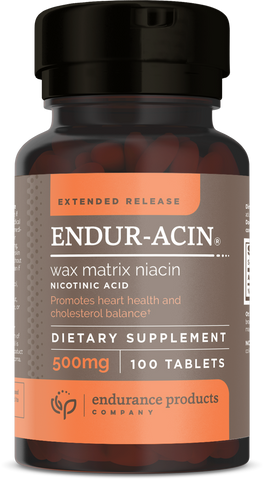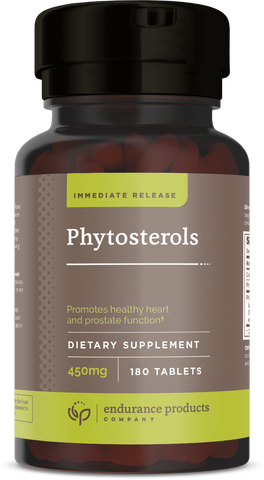You want to take control of your heart health and we’re here to help. Here’s your perfect heart-healthy plan from the time you wake up ‘til the time your head hits the pillow.
7:00 am. Do some morning yoga
Preparing your body to ease into the day can help you fend off the stressors that are bound to come later. Yoga can help get blood circulating throughout the body, bring oxygen-rich blood to all your muscles, and help calm your mind. A Swedish study found that after 12 weeks of a regular yoga practice, participants with atrial fibrillation (an irregular and often rapid heart rate) had significantly lower blood pressure and heart rate.1 Here’s more about the benefits of yoga and your heart.
7:30 am. Eat a heart-healthy breakfast
The morning meal is especially important for heart health according to a study of more than 4,000 middle-aged adults in Spain. Data showed that those who ate breakfast were less likely to have atherosclerosis (fatty deposits that can clog arteries) than those who skipped breakfast.2 Not sure what to eat? Try oatmeal with a sprinkle of berries. Oats are high in beta-glucan, a type of soluble fiber that can help reduce cholesterol and blood sugar levels and help you feel fuller longer. Here’s a recipe for steel-cut oatmeal.
10 am. Stand up and stretch every half hour
The less you sit, the longer you’ll live. Don’t believe it? One multi-center study of over 120,000 men and women found that folks who sat more than six hours a day died earlier than those who sat for three hours a day or less.3 Do whatever you can to spend less time on your tush. Buy a standing desk, pace while you’re talking on the phone, hide the remote control, and set a timer on your smartphone or watch so you don’t forget throughout the day.
11 am. Phone a friend
Reserve a few minutes before lunch to pick up the phone. Connecting with friends can help your heart according to research. One study found that those who are most socially isolated had more than twice the odds of death from cardiovascular disease compared to those who are most social.4
1 pm. Take a walk after lunch
The American Heart Association and others recommends exercise 30 minutes a day, five times a week. But it doesn’t have to be 30 minutes at a time. A 15-minute walk after lunch and another one after dinner will do the trick. Not sure how to get started? Here are a few walking tips for beginners.
3 pm. Write in a gratitude journal
Take some time every afternoon to write down three things you’re grateful for. Taking a few moments every day to look inward and appreciate all the good things we have can help nurture the body. Research from the University of Illinois found that grateful individuals lead a healthier way of life.5
6 pm. Eat a Mediterranean dinner
Eating the Mediterranean way means plenty of plant-based foods, whole grains, beans and other legumes, and nuts, plus healthy fats, moderate amounts of fish, poultry, and dairy products. It also means your heart may be healthier, even if you’re at higher risk for cardiovascular disease. One large study found that, compared to a low-fat diet, a Mediterranean diet supplemented with either extra-virgin olive oil (about one tablespoon per day) or nuts (about one serving a day) significantly reduced the risk of heart attack, stroke, and death from heart disease by 30% for those at high risk for heart disease.6
Try salmon with an olive tapenade and tomatoes with steamed vegetables and a side of brown rice. See even more benefits of the Mediterranean diet here.
9 pm. Brush and floss before bed
Experts aren’t sure of the exact cause but research has shown that those with gum disease are up to 35% more likely to suffer from heart disease.7 It may relate to the inflammation occurring in the gums as other diseases with inflammation have been shown to trigger hardening of the arteries throughout the body.
10 pm. Get to sleep on time
When researchers analyzed data from one large population study of more than 6,500 participants enrolled in the National Health and Nutrition Examination Survey, they found that those sleeping fewer than six hours a night were twice as likely as those sleeping six to eight hours to experience a stroke or heart attack and 60 percent more likely to have congestive heart failure.8
Then wake up to a healthy heart!
About Endurance Products Company
Endurance Products Company has been a trusted source of quality dietary supplements since 1978. Our sustained-release and extended-release tablets feature a unique vegetable wax matrix that releases nutrients in a slow, steady manner over a period of hours for optimal nutrient absorption and retention.
References
- Wahlstrom M, Rydell Karlsson M, Medin J, Frykman V. Effects of yoga in patients with paroxysmal atrial fibrillation: a randomized controlled study. Eur J Cardiovasc Nurs. 2017;16(1):57-63. PMID: 26976659.
- Uzhova I, Fuster V, Fernández-Ortiz A, et al. The importance of breakfast in atherosclerosis disease: insights from the PESA study. J Am Coll Cardiol. 2017;70(15):1833-42. PMID: 28982495.
- Patel AV, Bernstein L, Deka A, et al. Leisure time spent sitting in relation to total mortality in a prospective cohort of US adults. Am J Epidemiol. 2010;172(4):419-29. PMID: 20650954.
- Heffner KL, Waring ME, Roberts MB, Eaton CB, Gramling R. Social isolation, C-reactive protein, and coronary heart disease mortality among community-dwelling adults. Soc Sci Med. 2011;72(9):1482-8. PMID: 21492978.
- Hill PL, Allemand M, Roberts BW. Examining the pathways between gratitude and self-rated physical health across adulthood. Pers Individ Dif. 2013;54(1):92-6. PMID: 23139438.
- Estruch R, Ros E, Martínez-González MA. Mediterranean diet for primary prevention of cardiovascular disease.N Engl J Med. 2013;369(7):676-7.PMID: 23944307.
- Humphrey LL, Fu R, Buckley DI, Freeman M, Helfand M. Periodontal disease and coronary heart disease incidence: a systematic review and meta-analysis. J Gen Intern Med. 2008;23(12):2079-86. Review. PMID: 18807098.
- Aggarwal S, Loomba RS, Arora RR, Molnar J. Associations between sleep duration and prevalence of cardiovascular events. Clin Cardiol. 2013;36(11):671-6. PMID: 24122853.


